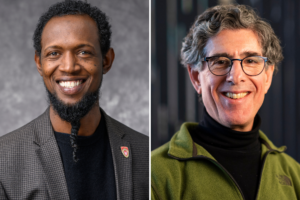According to the World Health Organization, more than 700K people die by suicide every year globally, with a high percentage of deaths among 15 to 29-year-olds. The International Association for Suicide Prevention says that a person suffering from depression is 20 times more likely to die by suicide than someone without the disorder. U.S. Surgeon General Dr. Vivek H. Murthy has flagged “significant increases in certain mental health disorders in youth, including depression, anxiety, and suicidal ideation” in recent years. Clearly, the need for innovative, science-backed interventions for suicide prevention and for cultivating well-being as a prevention strategy is paramount.
Past research has explored the connection between cognitive inflexibility (difficulty adapting to changes) and inability to regulate emotions with greater vulnerability for suicidal thoughts and attempts. So, what if interventions could target and repair the areas of the brain that control emotion regulation (the ability to control emotional responses) and cognitive flexibility (the ability to multitask and adapt).
A multi-disciplinary team of University of Wisconsin–Madison researchers, led by the Center for Healthy Minds and the Wisconsin Institute for Sleep and Consciousness, is set to begin a highly novel, multi-phase study, dedicated to exploring this question. The team aims to identify hybrid interventions based on neuroscience and clinical science to increase well-being, with an ultimate goal of suicide prevention.
Supported by a new 30-month contract worth up to $14 million from DARPA (a governmental agency dedicated to research and development of transformational technology), the team will soon launch phase one of the research project, to explore strategies for optimizing the brain networks essential for emotional regulation and cognitive flexibility.
Phase one will focus on assessment and testing of low-risk, healthy study participants. First, participants will be assessed on well-being, suicidality, and neurological measures, using sophisticated neuroimaging tools. Next, participants will undergo a 4-week test period of hybrid interventions, including the Healthy Minds Program, an app-based meditation training program for well-being developed by a non-profit affiliated with CHM, Healthy Minds Innovations. This meditation program will be combined with a highly novel, non-invasive, targeted brain stimulation during sleep to increase neuroplasticity and facilitate meditation-based skill learning.
This groundbreaking targeted brain stimulation (called “transcranial electrical stimulation with temporal interference”), directs targeted frequencies from non-invasive sensors placed on the head during sleep, to achieve direct stimulation of specific areas of the brain. Participants are expected to be unaware of the stimulation that occurs as they sleep.
“This approach of combining meditation during wakefulness with neurostimulation during sleep has never been tried before but there are strong reasons to expect that they will synergistically interact, and we expect the combined impact will be greater than the sum of its parts,” says Dr. Richard Davidson, founder and director of the Center for Healthy Minds and co-investigator of the study.
Following each phase of interventions, participants will be reassessed for well-being and suicidality. Should phase one yield positive results, phase two of the project will expand the hybrid interventions to include more refined brain stimulation as well as physical exercise, both with a low-risk healthy participant pool, and participants who are more at-risk. Future research would aim to involve participants at high-risk for suicidality.
Ultimately, the team envisions a future where personalized interventions will enable individuals to flourish even amidst challenging circumstances. The team further believes that if this research leads to a scalable solution to improve well-being, it has the potential to contribute toward a healthier world.
“We are thrilled to receive support for this highly innovative, potentially transformational research. This kind of work has never been done before and the world really needs it,” says Davidson.
-Heather Harris






